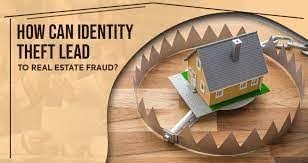The Importance of Validating the Identity of the Seller to Prevent Scams and Identity Theft

The Importance of Validating the Identity of the Seller to Prevent Scams and Identity Theft
In today's digital age, the real estate market has seen a surge in scams and identity theft cases. As a prospective buyer, it's crucial to prioritize due diligence to protect yourself from fraudulent activities. One of the essential steps in this process is to verify or validate the seller's identity. This article will explore why this verification process is vital in ensuring a safe and secure real estate transaction.
1. Confirming Seller's Identity:
Part of your due diligence when considering a property purchase is confirming the seller's identity. You want to ensure that the person selling the property is indeed the legitimate owner listed on the title. To do this, you can request the following documents:
Government Valid IDs: Ask the seller for at least two government-issued valid identifications. This can include documents such as a Driver's License, Passport, or other government-issued IDs.
Tax Identification Number (TIN): Request the seller's TIN, as it is a crucial identifier for tax purposes.
2. Verification with Government Agencies:
To further validate the seller's identity, consider verifying the provided documents with the relevant government agencies. Cross-check the information on the IDs and TIN with the records to confirm their authenticity.
3. Interviewing Neighbors and Barangay Officials:
In some cases, it may be prudent to interview neighbors and barangay officials in the area where the property is located. They may have information that can help validate the seller's identity and the legitimacy of the sale.
4. Special Power of Attorney (SPA):
If the seller is abroad and represented by relatives or friends through a Special Power of Attorney (SPA), take extra precautions. Ensure that the SPA document is authenticated with a Red Ribbon or Apostille, depending on the country's requirements. It's advisable to have your lawyer review the SPA thoroughly.
5. Online Meetings with Registered Owner:
Whenever possible, schedule online meetings with the registered owner of the property. This allows you to validate all relevant information, including the selling price, tax terms, payment conditions, documentation, and the legitimacy of the SPA. During these meetings, ask for government IDs and passports to reconfirm the seller's identity.
6. Notarized SPA Verification:
In cases where the SPA notarized in the Philippines during the seller's visit and they are now abroad, scrutinize their passport entry and exit dates. Ensure they coincide with the SPA signing and date. Also, consult the lawyer who notarized the SPA to verify its authenticity.
7. Professional Assistance:
Validating a seller's identity can be a complex and time-consuming process. If you encounter difficulties or are unsure about any aspect of the transaction, consider seeking assistance from a professional licensed broker and a lawyer. Their expertise can be invaluable in ensuring a secure property purchase.
In conclusion, the real estate market is increasingly susceptible to scams and identity theft. As a responsible buyer, it's crucial to perform due diligence and verify the seller's identity to protect yourself from potential fraud. Remember that this verification process is an essential step before making any property investment. Always exercise caution and seek professional guidance to ensure a safe and legitimate real estate transaction. For more information and advice, contact us at 09173236123 Samuel O Lao and Associates.
#RealEstateInvesting #FraudAlert #ScammerAlert #IdentityTheft #propertyinvestment
Tags: Identify Theft Scammer Fraud Real estate Property investment










